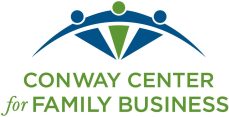Our goal is to keep you updated on information related to COVID-19 (coronavirus) and, specifically, what you can consider as an employer. We received a great question from one of our clients about unemployment, options, and the impact of claims on your account. Please read on as you are trying to make the decisions best for you and your employees during this quickly changing situation. For this email, ODJFS stands for Ohio Department of Job and Family Services. Honestly, none of us want to think about this, but think about incremental steps you can take now to avoid or lessen larger-impact steps you may have to take later.
What if I have to lay off my staff?
None of us want to think about this right now, but it is a distinct possibility. The short answer is that you pay into unemployment insurance for this very reason. When an employee becomes unemployed through no fault of their own, this insurance benefit is there for them. Whether you lay them off or shut down your operations, your employees have become unemployed through no fault of their own. Employees who apply for unemployment must still meet the eligibility requirements, which include wages earned and weeks worked. Do not advise your staff on this; encourage them to work with ODJFS directly. More information on how the calculation works is here. https://unemployment.ohio.gov/PDF/HowOhioUCBenefitsAreCalculated.pdf
What if I have to reduce hours of staff?
Your employees may still be able to apply for some relief. Again, they should check with ODJFS directly. Keep in mind that this is one potential strategy to reduce your payroll expenses in direct response to any revenue decreases, while keeping staff connected to you. See below for tasks you can have staff complete during a reduction in hours.
If an employee self-quarantines, or becomes ill, can they apply for unemployment insurance?
Unless they do this after you communicate a decision to cease operations, lay off employees, or reduce hours, most likely no. Instead, they will need to use their accrued paid time off or sick leave. Remember, to be on employment, an unemployee must be available for work.
Will my unemployment insurance tax rate increase because of this?
Possibly. At the moment, the current federal emergency declaration is focusing on mobilizing medical personnel and critical medical responses, and not direct employer relief in this area. Additional declarations may result in additional support and relief to small businesses.
What can I do to lessen the impact on my business and my employees?
- First, realize that you are not in this alone. Reach out to your confidantes, mentors, and business advisors and ask them what they are doing to keep operations going. You may be surprised at what can and will come out of this collective think tank.
- The easiest answer for many may be remote working arrangements. We would encourage you to approach this with careful planning, including setting up clear communication and performance expectations. Utilize a Remote Work Agreement to outline these and have them signed.
- Many businesses may not be able to do remote work due to the nature of their business. Retail, certain service businesses, and light manufacturing come to mind here. One of our retail clients pulled together its entire management team for a planning meeting last week. The collective team (remember, you don’t need to make these decisions alone) quickly identified opportunities to implement, including live chat with customers, increased shipping options, delivery options, and a way for clients to drive up to the door of the store to pick up items without leaving their cars after ordering via telephone, live chat, and web. This is a small business with under 50 employees. They’re viewing this as an opportunity.
- Think about how you can still offer services while practicing good social distancing practices. This may mean that you do have to make some difficult lay-off decisions for some staff, but not all. Utilize a well-though-out plan here so you avoid anything that could be discriminatory. Use a LIFO (last in, or hired, first out, or laid off) or other objective thought process to inform your decisions.
- Have you been putting off a good, deep cleaning in your offices because you’ve been too busy? Now might be the time to do that while keeping team members working.
- Have you been putting off important training because everyone has been working at capacity? Now may be a great time to develop your workforce. Work with each person to put together a cross-training and upskilling plan. Keep your future business growth plans in mind and make sure the development plans will result in a team ready to hit the ground running when you are.
- Don’t forget mandatory and best practices training, such as harassment avoidance training, anti-bullying training, substance abuse training, and so on.
- Processes out of date? Select your best trainers and communicators to update your processes. This is a great time to test new processes, too.
Finally, watch what larger businesses are doing to cut costs without necessarily laying off employees or ceasing operations:
- Decrease hours of operations.
- Trim non-critical benefits. They can’t really use the gym benefit at the moment, anyway. (Make sure you check any contracts or agreements you have in place.)
- Get creative with shift options. If you normally only have people in the office 8:00 a.m. to 5:00 p.m., maybe have a couple of people in during the day and a couple in during the evening. This will help you continue offering services (if the demand is there) and allow you to utilize social distancing practices.
- Reduce wages – While not ideal, you can work with employees to reduce their compensation rather than benefits; make these changes only after you talk to your employees and provide them these changes in writing. (Make sure you don’t violate minimum wage requirements or anything that would invalidate a position’s exemption status.)
- Look to your line of credit. This may be the time to think about dipping into it. (Engage your accountant and banker for the best options for you.)
Of course, we’ll all be required to following any mandated emergency measures, so these solutions may be short-term or need refined.
Stay tuned and please do not hesitate to reach out. We’re here to help.
Sharon DeLay, MBA, SPHR, SHRM-SCP, CPCC
GO-HR (a dba of BoldlyGO Career and HR Management, LLC)
[O] 614-473-0122 ▪ [C] 614-233-1522
www.go-hr.biz ▪ sharon.delay@go-hr.biz

